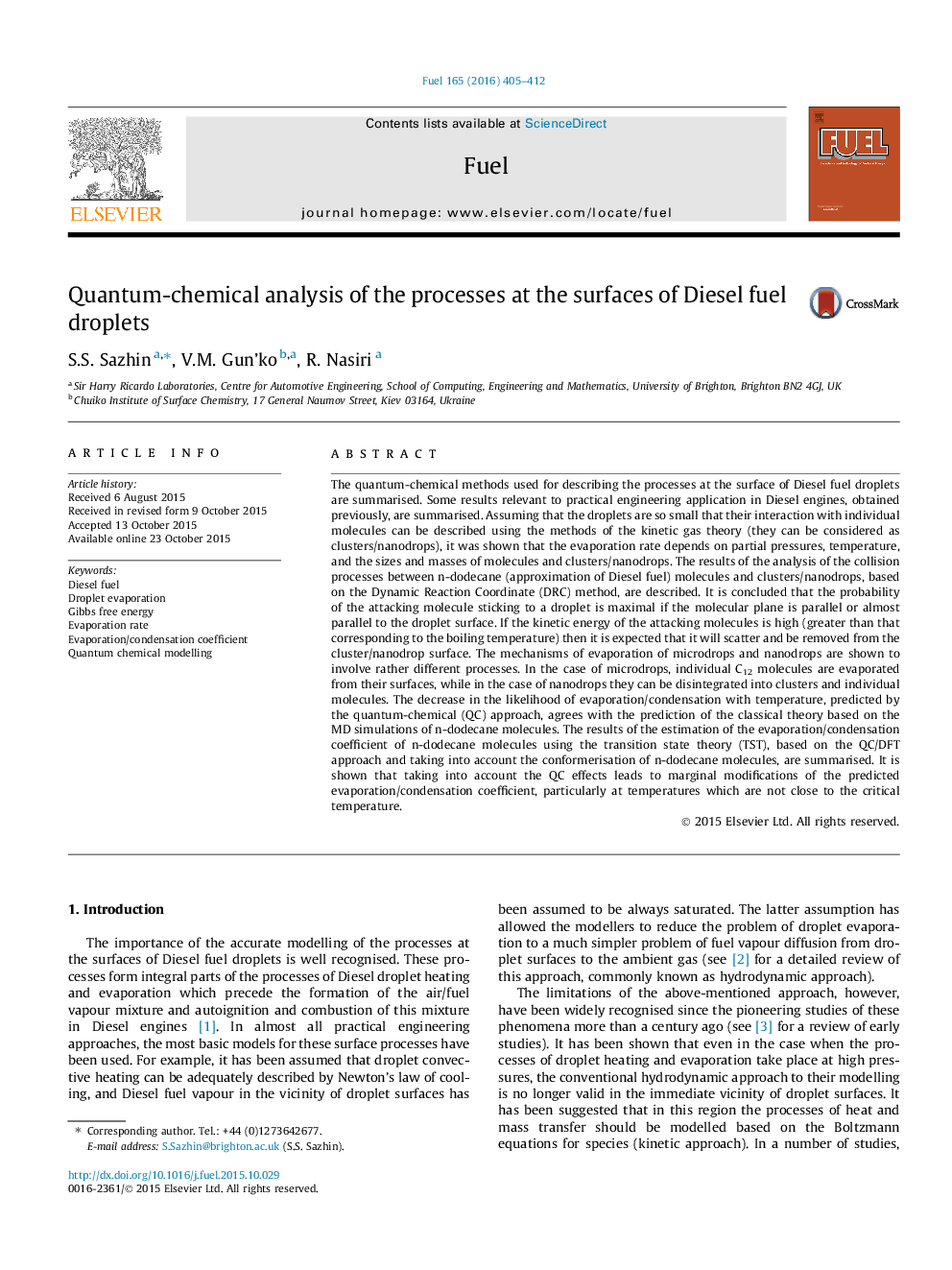| کد مقاله | کد نشریه | سال انتشار | مقاله انگلیسی | نسخه تمام متن |
|---|---|---|---|---|
| 6634301 | 461113 | 2016 | 8 صفحه PDF | دانلود رایگان |
عنوان انگلیسی مقاله ISI
Quantum-chemical analysis of the processes at the surfaces of Diesel fuel droplets
ترجمه فارسی عنوان
تجزیه و تحلیل کوانتومی شیمیایی از فرایندهای در سطوح قطرات سوخت دیزل
دانلود مقاله + سفارش ترجمه
دانلود مقاله ISI انگلیسی
رایگان برای ایرانیان
کلمات کلیدی
سوخت دیزلی، تبخیر قطره، انرژی آزاد گیبس، نرخ تبخیر، ضریب تبخیر / تراکم، مدلسازی شیمیایی کوانتومی،
موضوعات مرتبط
مهندسی و علوم پایه
مهندسی شیمی
مهندسی شیمی (عمومی)
چکیده انگلیسی
The quantum-chemical methods used for describing the processes at the surface of Diesel fuel droplets are summarised. Some results relevant to practical engineering application in Diesel engines, obtained previously, are summarised. Assuming that the droplets are so small that their interaction with individual molecules can be described using the methods of the kinetic gas theory (they can be considered as clusters/nanodrops), it was shown that the evaporation rate depends on partial pressures, temperature, and the sizes and masses of molecules and clusters/nanodrops. The results of the analysis of the collision processes between n-dodecane (approximation of Diesel fuel) molecules and clusters/nanodrops, based on the Dynamic Reaction Coordinate (DRC) method, are described. It is concluded that the probability of the attacking molecule sticking to a droplet is maximal if the molecular plane is parallel or almost parallel to the droplet surface. If the kinetic energy of the attacking molecules is high (greater than that corresponding to the boiling temperature) then it is expected that it will scatter and be removed from the cluster/nanodrop surface. The mechanisms of evaporation of microdrops and nanodrops are shown to involve rather different processes. In the case of microdrops, individual C12 molecules are evaporated from their surfaces, while in the case of nanodrops they can be disintegrated into clusters and individual molecules. The decrease in the likelihood of evaporation/condensation with temperature, predicted by the quantum-chemical (QC) approach, agrees with the prediction of the classical theory based on the MD simulations of n-dodecane molecules. The results of the estimation of the evaporation/condensation coefficient of n-dodecane molecules using the transition state theory (TST), based on the QC/DFT approach and taking into account the conformerisation of n-dodecane molecules, are summarised. It is shown that taking into account the QC effects leads to marginal modifications of the predicted evaporation/condensation coefficient, particularly at temperatures which are not close to the critical temperature.
ناشر
Database: Elsevier - ScienceDirect (ساینس دایرکت)
Journal: Fuel - Volume 165, 1 February 2016, Pages 405-412
Journal: Fuel - Volume 165, 1 February 2016, Pages 405-412
نویسندگان
S.S. Sazhin, V.M. Gun'ko, R. Nasiri,
